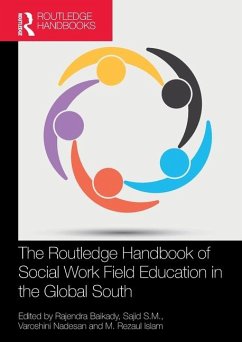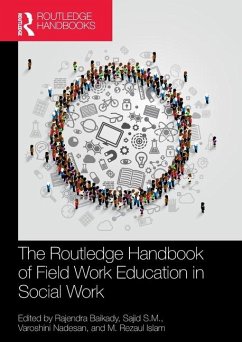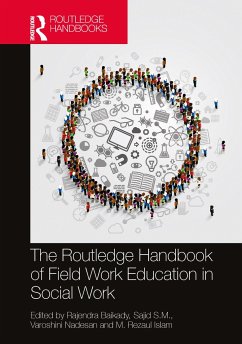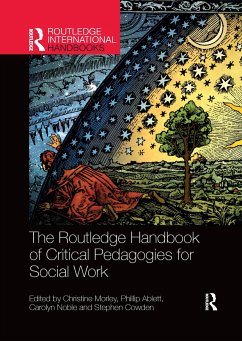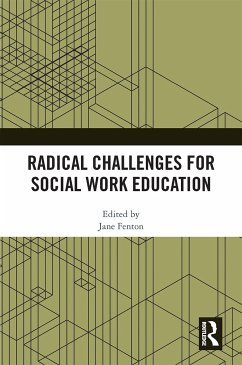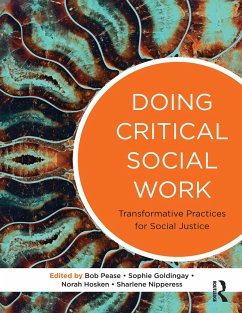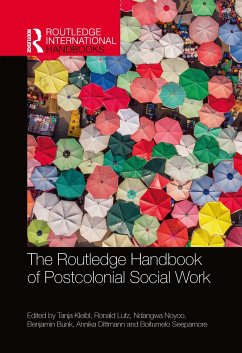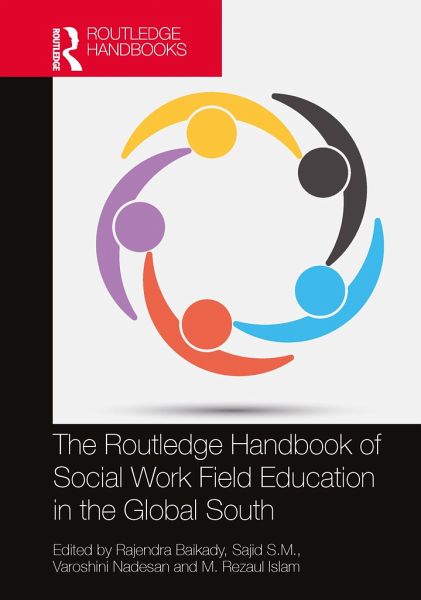
The Routledge Handbook of Social Work Field Education in the Global South
Versandkostenfrei!
Versandfertig in 6-10 Tagen
230,99 €
inkl. MwSt.

PAYBACK Punkte
115 °P sammeln!
This handbook provides an authoritative account of social work field education in the global south. It presents an overview of various aspects of theory and practice modules in the social work curriculum and advances in research in social work field education in the developing world through in-depth analyses and global case studies.Key features:Discusses critical issues and new directions in the theory and practice of social work field education, challenges in field work education, decolonising field work training, developing competent social work graduates, aligning fieldwork with cultural pr...
This handbook provides an authoritative account of social work field education in the global south. It presents an overview of various aspects of theory and practice modules in the social work curriculum and advances in research in social work field education in the developing world through in-depth analyses and global case studies.
Key features:
Discusses critical issues and new directions in the theory and practice of social work field education, challenges in field work education, decolonising field work training, developing competent social work graduates, aligning fieldwork with cultural practices in indigenous communities, the idea of clinical social work, and a comparative analysis of social work field supervisionIntegrates theory and practice of social work field education for students and teachers from diverse geographical and cultural contexts across the global south, including countries from South Asia and Asia, Africa, and Latin America and the Caribbean, covering India, Bangladesh, Pakistan, Nepal, Sri Lanka, China, Georgia, Philippine, Turkey, Papua New Guinea, Eswatini, Republic of Trinidad & Tobago, Kenya, Nigeria, South Africa, Botswana, Chile, and BarbadosBrings together international comparative perspectives on field work education in social work from leading experts, social work educators, and social work professionals
This handbook will be an essential resource for scholars and researchers of social work, development studies, social anthropology, sociology, education, South Asian studies, and Global South studies. It will also be useful to educators and practitioners of social work in global institutions of higher studies as well as civil society organisations.
Key features:
Discusses critical issues and new directions in the theory and practice of social work field education, challenges in field work education, decolonising field work training, developing competent social work graduates, aligning fieldwork with cultural practices in indigenous communities, the idea of clinical social work, and a comparative analysis of social work field supervisionIntegrates theory and practice of social work field education for students and teachers from diverse geographical and cultural contexts across the global south, including countries from South Asia and Asia, Africa, and Latin America and the Caribbean, covering India, Bangladesh, Pakistan, Nepal, Sri Lanka, China, Georgia, Philippine, Turkey, Papua New Guinea, Eswatini, Republic of Trinidad & Tobago, Kenya, Nigeria, South Africa, Botswana, Chile, and BarbadosBrings together international comparative perspectives on field work education in social work from leading experts, social work educators, and social work professionals
This handbook will be an essential resource for scholars and researchers of social work, development studies, social anthropology, sociology, education, South Asian studies, and Global South studies. It will also be useful to educators and practitioners of social work in global institutions of higher studies as well as civil society organisations.



